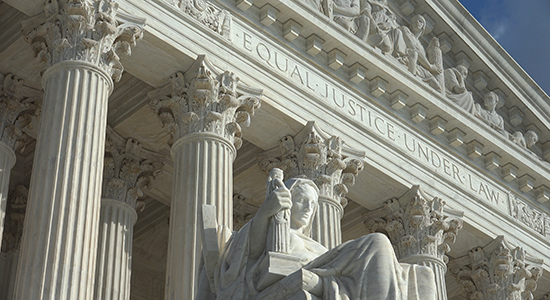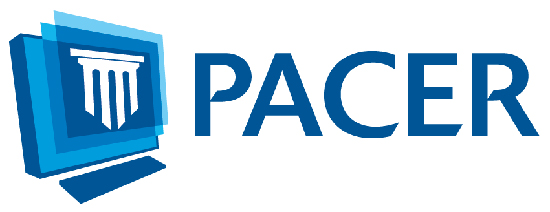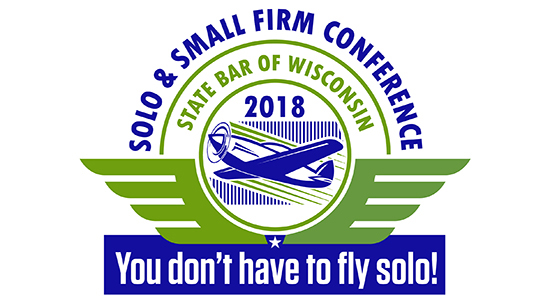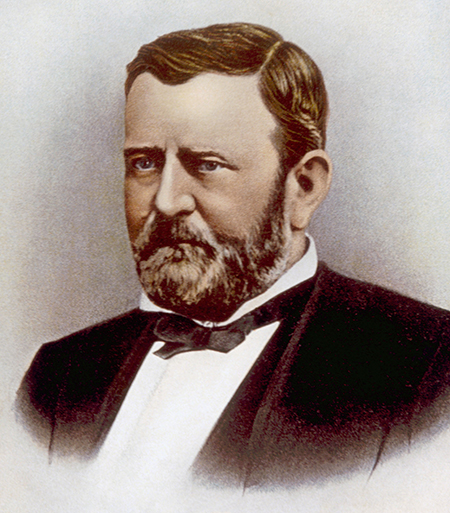Good Ideas
High School Student Starts
Blog on SCOTUS Decisions

Anna Salvatore, a high school student in New Jersey, has started a blog called
High School SCOTUS. The blog analyzes U.S. Supreme Court cases. She has five
contributors, all in or recently graduated from high school.
It began as a blog about specific cases affecting high school students but has
morphed into something with a broader focus.
“High schoolers should care because the Supreme Court is enormously influential
in our society,” Salvatore told NPR.
“It makes decisions that affect where we can live, what rights we have when
we’re arrested, who we can marry, how much power a president has, and so
many other things.”
Speaking of high school students and the law, this month the State Bar of
Wisconsin’s High School Mock Trial Program is releasing the 2018-19 case
materials.
Students will study the materials and practice, with the help of volunteer
attorneys, before mock trial competition begins in February. Last season, 122
teams participated. Shorewood High School took the title.
Source: NPR
By the Numbers
34
The number of years since the results on the
Multistate Bar Exam (MBE) were this low. The
MBE is a 200-question, multiple-choice examination.
Exam takers have six hours to complete it,
typically on day one of the multi-day bar exam.
Nearly 45,000 people took the July MBE, the
smallest group of aspiring lawyers to take it
since 2001. The scores dropped to 139.5–
the
lowest level since 1984.
“We’ll know more in the months to come, but
it looks like another year of decline will cause
some continued anguish in legal education,”
wrote law professor and blogger Derek Muller.
“The increased quality of law school applicants
this year will help the July 2021 bar exam look
much better.”
Graduates of Wisconsin law schools are not
required to take a bar exam. Wisconsin is the only
state with the “diploma privilege.”
Source: ABA Journal, National Conference of
Bar Examiners
Quotable
“I mean, it’s legal, right?”

– Elon Musk, CEO of electric-car maker Tesla and space technology company SpaceX,
before smoking marijuana on the Joe Rogan Experience podcast last month.
The show was video-streamed live online from California, where recreational marijuana
use is legal. Rogen, a comedian, told Musk it was “totally legal.”
But after the podcast, CNBC published an article that said the U.S. Air Force is
investigating the incident, because SpaceX is a military government contractor.
According to the article, “marijuana use is prohibited for someone with a government
security clearance, which Musk may have because of the contracts SpaceX has with
the Air Force.”
Other media outlets reported that Tesla stock took a hit around the same time
Musk did, and that Musk may have violated Tesla company policy, which prohibits
illegal drug use in the workplace.
Vector illustration: Elon Musk, June 09, 2015. Palo Alto, CA, USA. Sketch by hand.
On the Radar
Proposed Bill Would Make
PACER Documents Free

A Georgia Congressman introduced the Electronic Court Records
Reform Act of 2018 in September. The Act would make all documents
on the Public Access to Court Electronic Records (PACER) system free to access. PACER is the electronic document repository for the
federal court system.
The bill’s sponsor, Rep. Doug Collins (R-Ga.), a lawyer, said “Americans deserve a justice system that is transparent and accessible.
I introduced the Electronic Court Records Reform Act to modernize the judicial records systems and remove fee-for-access barriers
that technology has rendered unnecessary.”
Currently, PACER charges up to 10 cents per page to access federal court documents with a $3 cap that does not apply to “name
search results, lists of cases, or online transcripts.”
Source: ABA Journal, Congress.gov.
Did You Know?
How Are You Doing?
Score Your Solo or
Small Firm

Want to know where your solo or small firm
stands in the areas of strategy, systems,
marketing, client service, finances, and other
crucial areas?
The Lawyerist, which fosters a community of
solo and small firm lawyers, is offering the Solo
Practice Scorecard and the Small Firm Scorecard.
These are guided self-assessments “designed
to help small firms assess their strengths and
weaknesses in order to determine whether your
firm is positioned for success in the future.” Just
go to lawyerist.com/scorecard.
The 2018 State Bar of Wisconsin Solo and Small Firm Conference, Oct. 25-27, at the Kalahari
Resort in Wisconsin Dells, offers plenty of
practical sessions on a variety of topics of special
interest to solo and small firm lawyers, as well as
opportunities to socialize and relax. Learn more
and register at wisbar.org/wssfc.
From the Archive
Controversy Not New:
U.S. Supreme Court
Confirmation Hearings

Last month, much of the news concerned
controversy surrounding Brett
Kavanaugh, the U.S. Supreme Court
nominee whose fate was still unclear at
the time of this writing. Controversy is
nothing new.
The very first confirmation hearing
in the country’s history, which occurred
in 1873, was not without controversy.
In fact, President Ulysses S. Grant withdrew
his nominee, George Williams,
after the Senate Judiciary Committee
held closed-door sessions to examine
allegations that Williams used government
funds for household expenses
while serving as U.S. Attorney General.
Unlike current practice, confirmation
hearings were not open to the public until
1916, when nominee Louis Brandeis was confirmed. Nominees did not actually
testify before the committee until 1925, when Harlan Stone became the
first to do so.
Source: Paul Collins Jr. & Lori Ringhand, The Institutionalization of
Supreme Court Hearings, 41 L. & Soc. Inquiry 126 (2016).
